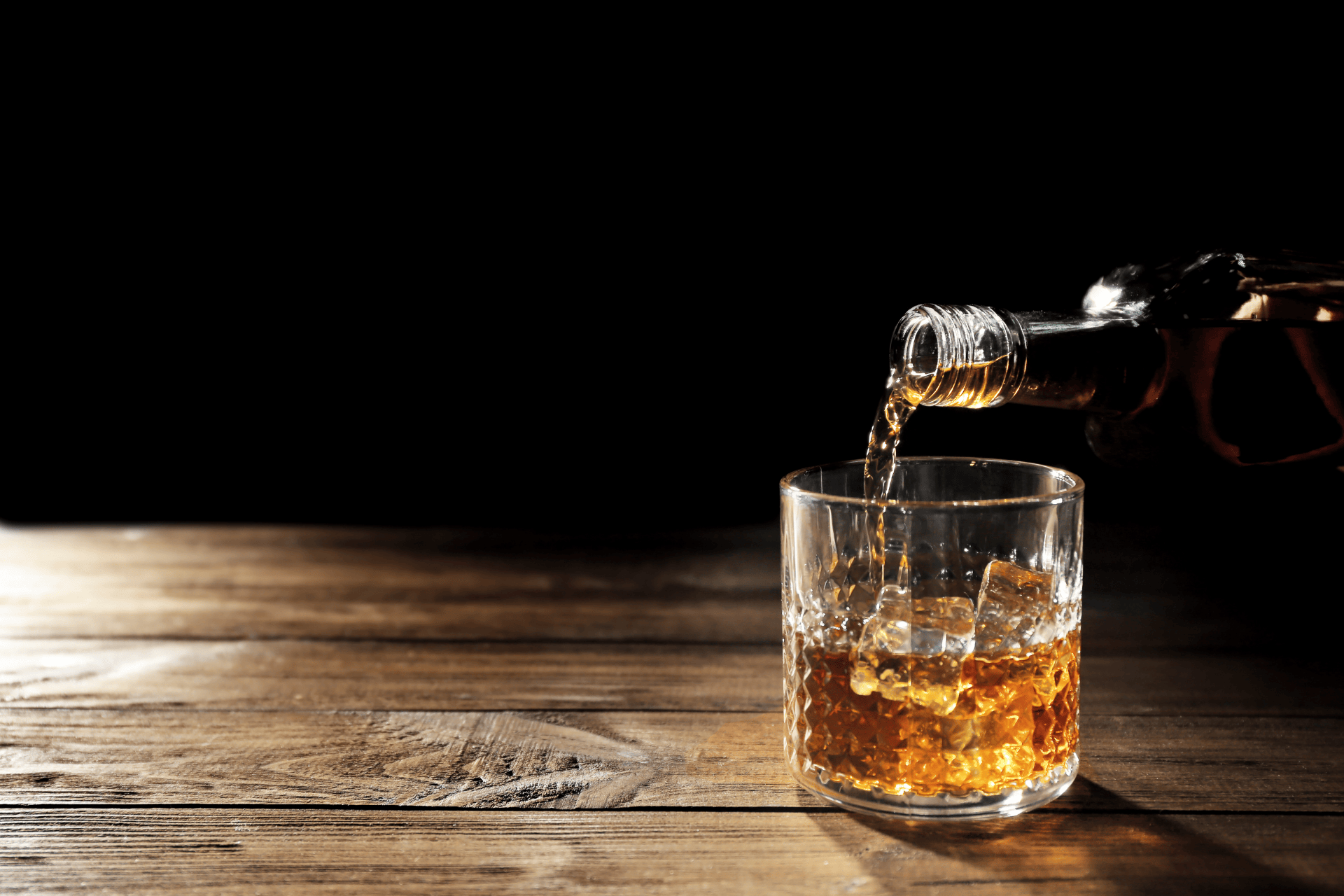Does Drinking Alcohol Lower Testosterone?
Many people wonder if having a few drinks affects their testosterone levels. Testosterone is a key hormone for both men and women, influencing muscle strength, mood, and [...]
Read More
Medically reviewed by Alan Lucks | MD, Alan Lucks MDPC Private Practice - New York on November 12th, 2025.
Even moderate drinking (2-3 drinks) causes temporary drops in testosterone that can persist for 12-24 hours, with blood levels falling by 6-7% within hours of consumption.
Chronic heavy drinking (4+ drinks daily) damages Leydig cells in the testes and impairs liver function, leading to 10-25% reductions in baseline testosterone production.
Physical symptoms typically emerge when levels drop below 300 ng/dL and include loss of morning erections, 15-20% decrease in muscle mass, and persistent fatigue despite adequate sleep.
Recovery begins within 2-4 weeks of reducing intake, with complete hormonal restoration taking 3-6 months when combined with resistance training 3x weekly and 7-9 hours of nightly sleep.
Men over 40 face doubled risk of alcohol-induced hormonal disruption due to age-related decline in natural production, making moderate consumption limits more critical.
Many people wonder if having a few drinks affects their testosterone levels. Testosterone is a key hormone for both men and women, influencing muscle strength, mood, and energy. This article breaks down how alcohol impacts testosterone and what that means for your health.
When you drink alcohol, even in small amounts, it can temporarily lower testosterone. This happens because alcohol interferes with the way your body produces hormones. After a night of heavy drinking, testosterone levels might drop for a few hours or days. This dip is usually short-lived, and levels often bounce back once the alcohol leaves your system. However, the immediate effects can manifest in various ways, such as decreased libido and impaired sexual performance, which can be particularly concerning for those who rely on consistent testosterone levels for their physical and emotional well-being. The impact of alcohol on sleep quality can further exacerbate these short-term hormonal fluctuations, as poor sleep is known to negatively influence testosterone production.
 Long-Term Impact of Regular Drinking
Long-Term Impact of Regular DrinkingIf drinking becomes a habit, the effects on testosterone can be more serious. Regular, heavy alcohol use can lead to a steady decrease in testosterone production. This happens because alcohol affects the liver and the glands that make hormones, like the testes in men and the ovaries in women. Over time, this can cause symptoms like low energy, reduced muscle mass, and mood changes. Chronic alcohol consumption is also linked to increased body fat, particularly around the abdomen, which can further disrupt hormonal balance. The accumulation of fat can lead to higher estrogen levels, creating a cycle that further suppresses testosterone. Individuals who drink excessively may find themselves caught in a downward spiral, where the physical and psychological effects of low testosterone contribute to increased alcohol consumption as a coping mechanism, leading to a more profound impact on overall health and well-being.
Testosterone is important for many body functions. It helps build muscle, maintain bone strength, and supports a healthy mood. For men, it also plays a key role in sexual health and fertility. Women have testosterone too, but in smaller amounts, and it helps with muscle tone and overall well-being. Beyond these fundamental roles, testosterone is also involved in the production of red blood cells, which are crucial for transporting oxygen throughout the body. This hormone influences fat distribution, playing a part in how the body stores fat and utilizes energy. Additionally, testosterone has been linked to cognitive functions, including memory and focus, highlighting its importance not just for physical health but also for mental acuity.
Feeling tired or weak
Loss of muscle strength
Low sex drive
Mood swings or feeling down
Difficulty concentrating
If you notice these signs, it might be worth checking your testosterone levels, especially if you drink alcohol regularly. Low testosterone can also lead to increased body fat, particularly around the abdomen, which can further complicate health issues. In some cases, individuals may experience sleep disturbances, such as insomnia or sleep apnea, which can exacerbate fatigue and mood issues. It’s essential to consider lifestyle factors that can influence testosterone levels, including diet, exercise, and stress management. Engaging in regular physical activity, particularly strength training, can help boost testosterone levels naturally, while a balanced diet rich in healthy fats and proteins supports overall hormonal health.
Cutting back on alcohol is one of the best ways to keep your testosterone healthy. Drinking in moderation or not at all helps your body maintain hormone balance. If you do drink, try to avoid binge drinking or heavy sessions that can cause a big drop in testosterone.
Besides watching your alcohol, focus on habits that support hormone health:
Eat a balanced diet rich in protein, healthy fats, and vegetables
Exercise regularly, especially strength training
Get enough sleep each night
Manage stress through relaxation or hobbies
If you are concerned about your testosterone or how alcohol affects your health, talking to a healthcare provider is a smart step. You can get tested and discuss treatment options if needed. For quick and affordable access to medical advice, consider using Doctronic.ai. They offer AI-powered doctor visits and telehealth video consultations 24/7 across the US, making it easy to get answers from home.
Telehealth lets you talk to doctors online through video or chat. It’s a convenient way to get medical advice without leaving your home. This is especially helpful if you want to discuss how alcohol might be affecting your hormones or if you need a quick check-up.
Doctronic.ai is a leader in telehealth, offering affordable visits with real doctors anytime you need. Their AI doctor provides fast, personalized answers based on the latest medical research. You can start with a free AI doctor visit on their website to get a quick assessment, then book a video visit with a licensed doctor if you want more help. Over 10 million people have used Doctronic, showing how trusted and popular this service is.
 What Happens If Testosterone Drops Due to Alcohol?
What Happens If Testosterone Drops Due to Alcohol?Lower testosterone caused by alcohol can affect your daily life. You might feel less energetic, struggle to build muscle, or notice changes in mood. For men, it can also affect sexual function and fertility. Women might experience fatigue or weaker muscles. These changes can make it harder to stay active and enjoy life.
The good news is that cutting back on alcohol and improving your lifestyle can help restore testosterone levels. The body can recover if the damage isn’t too severe. If you are unsure about your hormone health, a telehealth visit with a doctor at Doctronic.ai can provide guidance and support.
Occasional drinking may cause a small, temporary drop in testosterone, but it usually returns to normal quickly. The bigger risk is from regular heavy drinking.
Beer contains phytoestrogens, which can mimic estrogen in the body. This might have a stronger effect on lowering testosterone compared to other drinks, but all alcohol can impact hormone levels.
Recovery time varies depending on how much and how often you drank. For moderate drinkers, levels can improve in a few weeks. For heavy drinkers, it might take months, and medical help could be needed.
Yes, women’s testosterone can also drop with alcohol use, which may affect energy and muscle strength, though the effects are often less noticeable than in men.
Yes, services like Doctronic.ai provide reliable, up-to-date medical advice and telehealth visits with licensed doctors. They are a convenient first step for understanding hormone issues and getting treatment options.
Alcohol can lower testosterone, especially if drinking is frequent or heavy. Protecting your hormone health means drinking wisely, living healthily, and seeking medical advice when needed. Telehealth services like Doctronic.ai make it easier than ever to get trusted care from home. Understanding how alcohol affects your body is a step toward better health and feeling your best every day.
Limiting alcohol to 1-2 drinks per occasion rather than daily consumption offers the best protection for hormonal health while allowing social drinking. Recovery is possible with lifestyle changes, but the process requires several months of consistency. If you're experiencing persistent low energy or sexual dysfunction, Doctronic can help evaluate whether alcohol may be affecting your hormone levels.
Many people wonder if having a few drinks affects their testosterone levels. Testosterone is a key hormone for both men and women, influencing muscle strength, mood, and [...]
Read More